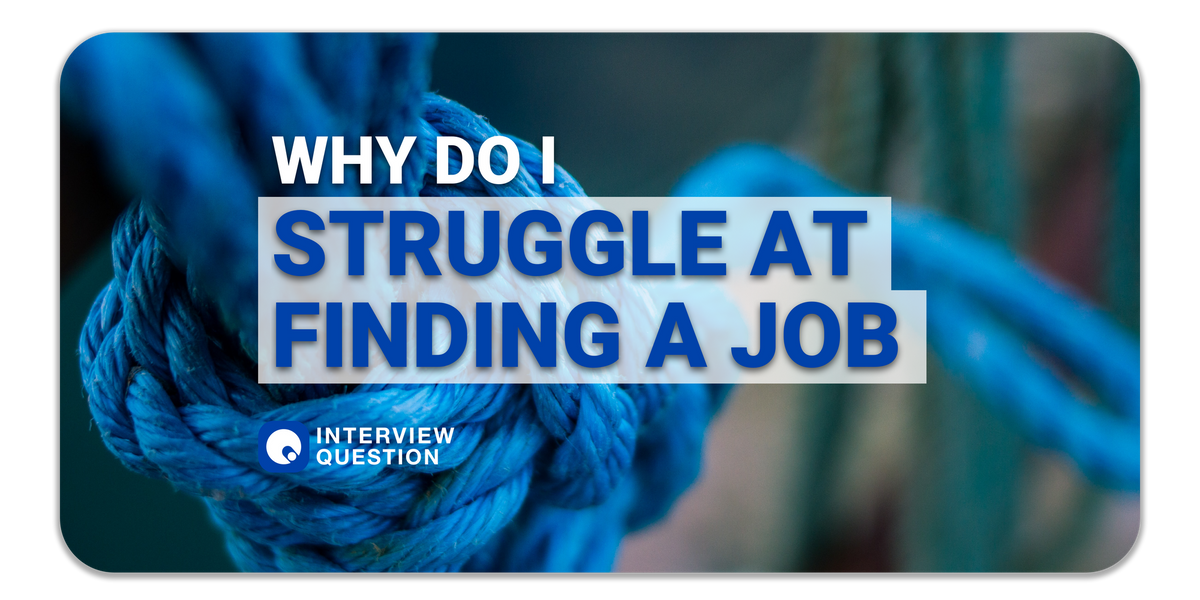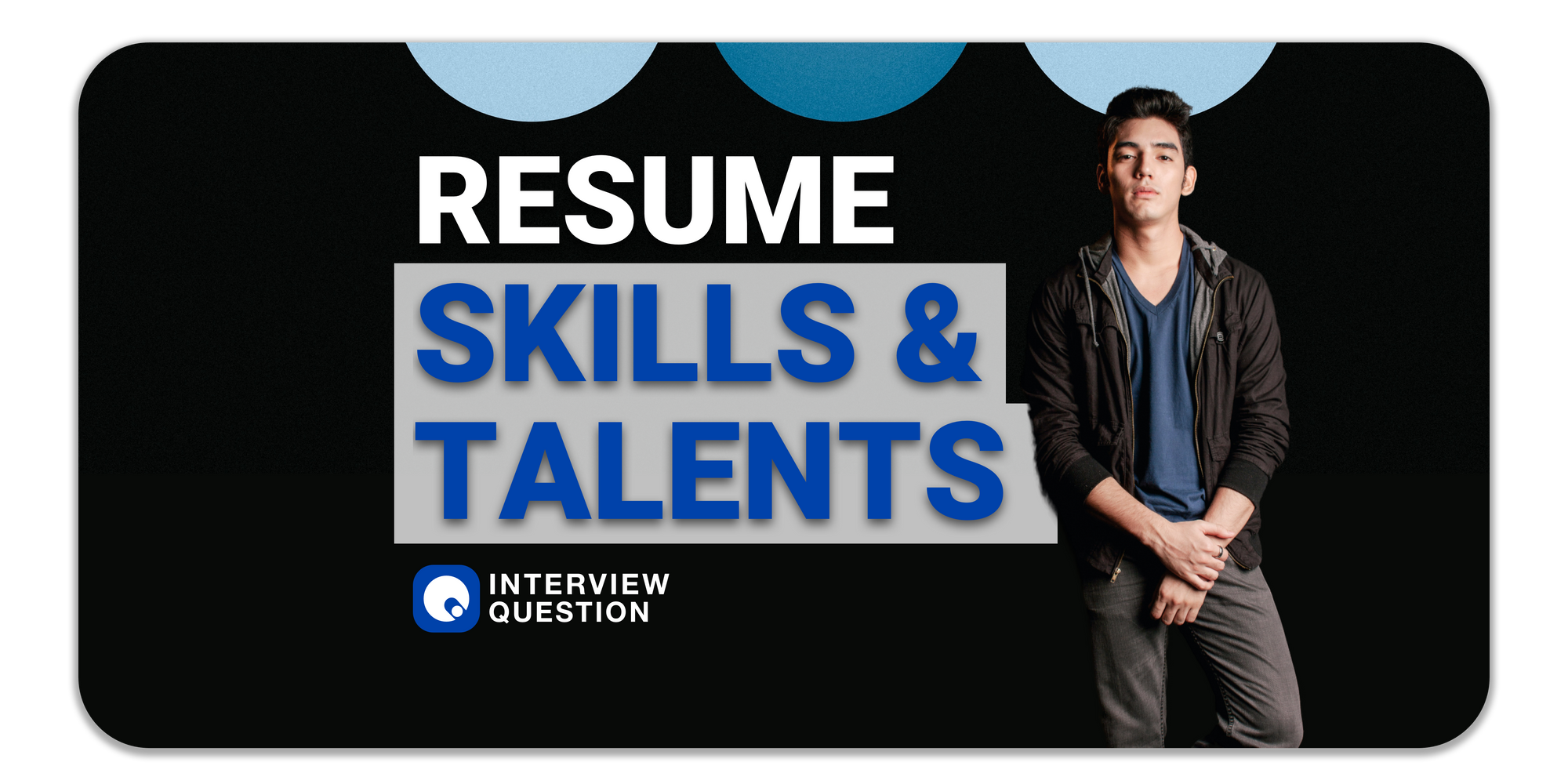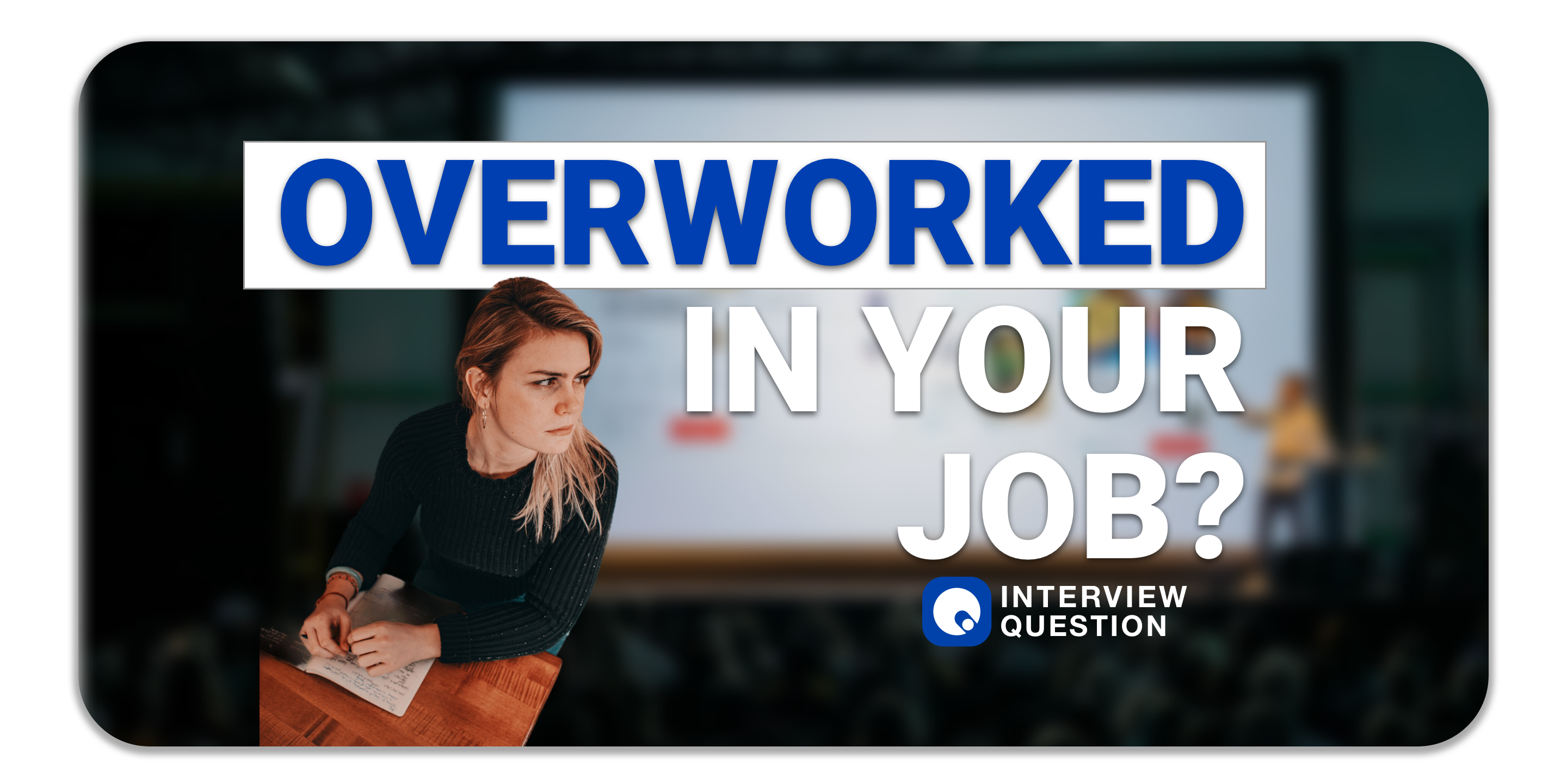Why Do I Struggle At Finding A Job?
Fighting for A Job In A Market That Has Intense Competition | Your Skills Are Great, But They Aren't The Best Fit For The Job You Want | Unable to Organize Everything that Life is Throwing at You | Start with the smallest and easiest problems

Many factors are at play when it comes to finding a job. The job market is intensely competitive, for example. And it can be difficult to stay organized amid everything else life throws your way. What this means is that you'll need to take action you might not otherwise have taken if things were going better. You'll need to put extra time and effort into improving your resume, tailoring every application letter, and staying on top of your professional network.
Here are six core reasons why people struggle at finding a job.
Fighting for A Job In A Market That Has Intense Competition
There is a lot of fish in the sea and (similarly) a lot of jobs in the market. But you have likely chosen to compete for a job that's so popular that you are facing stern competition. Even if you are the cream of the crop in that field, you need to outshine the others. This intense competition can make it incredibly land the job you want.
One of the best ways to break through the competition is by creating a new niche for yourself. And the only way to do this is by first answering an important question: Why do I REALLY want this job?

There are countless reasons why you may need a job. But if you have more than one reason, it is very possible that several of them are not going to get you the job. That's because some companies will be looking for people who are in dire need of a job. They want someone who will work hard for little pay and who will not make waves when given instructions or when faced with tough situations.
In many cases, you want this job because other people want it. And that's not really a good reason to slog 7 to 9 hours a day at a job that others want to be in, but you may actually not like.
Your Skills Are Great, But They Aren't The Best Fit For The Job You Want
Many times interviewers discover many great candidates with stellar qualifications, but grades do not define a person entirely, nor does their skill set. So if you are an individual who speaks with your life experiences, your charm, and your way of speaking, interviewers will either think you are awkward or they will think you are patronizing them.
Sometimes the person who most wows the interviewer is not the most qualified candidate on paper. And this can be for any number of reasons, ranging from the fact that you are a better cultural fit to your expertise aligning just right with what is needed for their business.

The thing that interviewers care for is your alignment with their company. This determines if you are the best fit.
What you want to do is to show that who you are is who they want. If you have a great resume with a slew of qualifications, but the job you want is different from the company, don't be embarrassed. Do not let rejection shatter your confidence or your ego. Instead, consider it as a lesson in the job market.
Fixing A Poor Fit
Poor fit could be a situation that is currently happening to at your existing job, and a convincing reason to push you to look for a new job.
- It is better to find out what's going on and what's wrong at your current job. If you can fix it, why change it? Making job transitions, having new colleagues and "reading" the minds of your new bosses isn't easy - in fact, you are going back down to the ground level and restarting again.
- Could you be overworked and stretched out to your limits at a current job. Many times, you were already considered to be a fit (which is why you were hired in the first place), but as time passed more responsibilities were given. Your plates piled and workload eventually became un-manageable to a point where you want an escape. A quick get-out option. But the fact is, your struggles at your current job can be ported over to your new job. Who's to say the problem will not reoccur? Why not get a good job fit, and get those problems fixed?

If you know you are a better fit for a different job, then go ahead and use that knowledge to create an even better fit for yourself.
Unable to Organize Everything that Life is Throwing at You
When things aren't going well, it's easy to overlook what needs to happen. And when we're overwhelmed with life, we're even less likely to be able to process information and find solutions.
Life is throwing everything it can at you: bills that need paying, relationships that need tending and a career or business that you want to succeed in. You know what will make things better? More stress! And don't forget about the kids demanding attention! They only add to the stress. Before you know it, you feel like a rat in a maze spinning your wheels but not going anywhere.
Your plate is full and adding the stress of job hunting can mess up your already disorganized life.
Everything that life throws at you can detract you from your job search. You feel you are drowning in a sea of obstacles. It feels impossible to see the clear path ahead. And then, if you try too hard, it will seem even more impossible. What you need is to find a way to stop struggling so much and start organizing your life to make it more systematic and less of a struggle.
Start with the smallest and easiest problems.
You can do this by using a technique called the "Three Ps". The Three Ps are a three-step system for breaking down any project into small, manageable pieces. In today's job market, your project is getting a job.
- Picking – pick the pieces that are easiest to start with. Evaluate these pieces and decide which ones you have the best chance of successfully completing.
- Planning – once you have identified the easiest tasks, plan how you will accomplish these tasks to reach your goal.
- Producing – now you can actually do the work. This is the fun part so get to it!
Another way to relieve the stress of finding a job is to simplify your life. There are two ways you can do this: by simplifying your tasks or by simplifying your thoughts about those tasks. Unnecessary tasks are often the ones that put us under stress.
Find a way to create a plan that will let you do what you need to do while also letting you relax. Learn how to take a few minutes of relaxation every day and devote it to a part of your life that you've been putting off. For example, write a letter to yourself about the projects in your life that need finishing, make a plan for how you will do this, and send yourself an email reminder.
You may decide that there are some tasks that you don't need to take care of anymore.
Your Resume Needs Work
If your resume is lacking in certain areas, it will be difficult for people who are searching for a job like yours. You'll need to take action if your resume isn't perfect. Don't wait until after you've received a few rejection letters to set to work on it.
The following problems will hinder your ability to find a job if they are present in your resume:
Wordiness
Unappealing presentation
Lack of organization
Inaccurate statements or material


Tailor Every Application Letter
Application letters allow people who've applied for jobs and interviews the chance to introduce themselves and why they would like this particular position with specific examples of how they can contribute in.
Generic application letters, reused resumes and copy-paste cover letters show a serious lack of effort and thought.
Most applications interviewers receive are quite generic, run run-of-the-mill and therefore lack personality. They don't showcase their readers' skills and abilities. They don't show their readers' passion for the job or why they would like to work there because it's all been assumed. This can be the case when people are applying for jobs for which they do not have any experience, even though initially it sounds like an amazing job.
Pre-written application letters lack personality because you've written them out to cover situations that you've already experienced. You don't get the opportunity to show, to the interviewer how well you can actually do what's required of you, because you've already done it. And this is not the only reason why people write these kinds of letters.
Staying on Top of Your Professional Network
Professional networks can be challenging to manage: You might not be always able to keep up with everything. You may or may not have time because of other things that need attention. And to add to that, you may not feel like you have any real power in the situation. However, there should be a balance between these two things: the professional network should never become a burden or time-sink for your busy life.
There are so many ways to use your professional network online and offline. The most important thing you can do is not to connect with everyone, but to not lose contact.
It is often hard to reconnect with an old friend online because more often than not they may think that you are trying to sell them something (as an insurance agent, realtor, etc) if you message her out of the blue. So, the first step to staying on top of your professional network is to know what they are over an extended period of time.

Also, not all professional connections are the same. Some connections are more important than others. How do you know which connections are which? Does your friend or colleague follow you on Facebook? Does she have a personal page too? That speaks volumes to me about the type of person she is. If you have connected with her through work, does she have a LinkedIn page which describes her interests and skills professionally? If so, that speaks volumes to me more about who she is as a person. I know someone who has an office at their place which they describe as their "STUFFY room!" However, some people are very business-minded but are not very social.
Generally, maintaining your professional networks will help you stay on top of what's happening in your career field, meet people who can help you out with job listings, and also give you opportunities.
You should also network with existing contacts in your career field. But, if you haven't spoken to them in a while, you need to stay on top of it. If they don't respond to your follow-up or if they critique your work negatively, then that means that they're not invested in what you're doing. This person is not helping you thrive in this career field because he or she doesn't believe in your work product.

